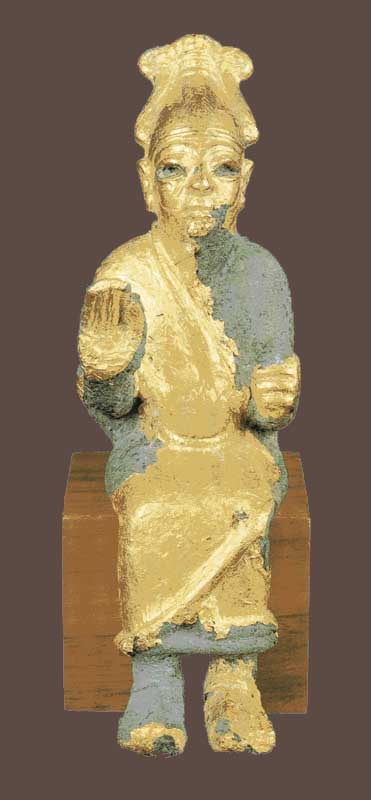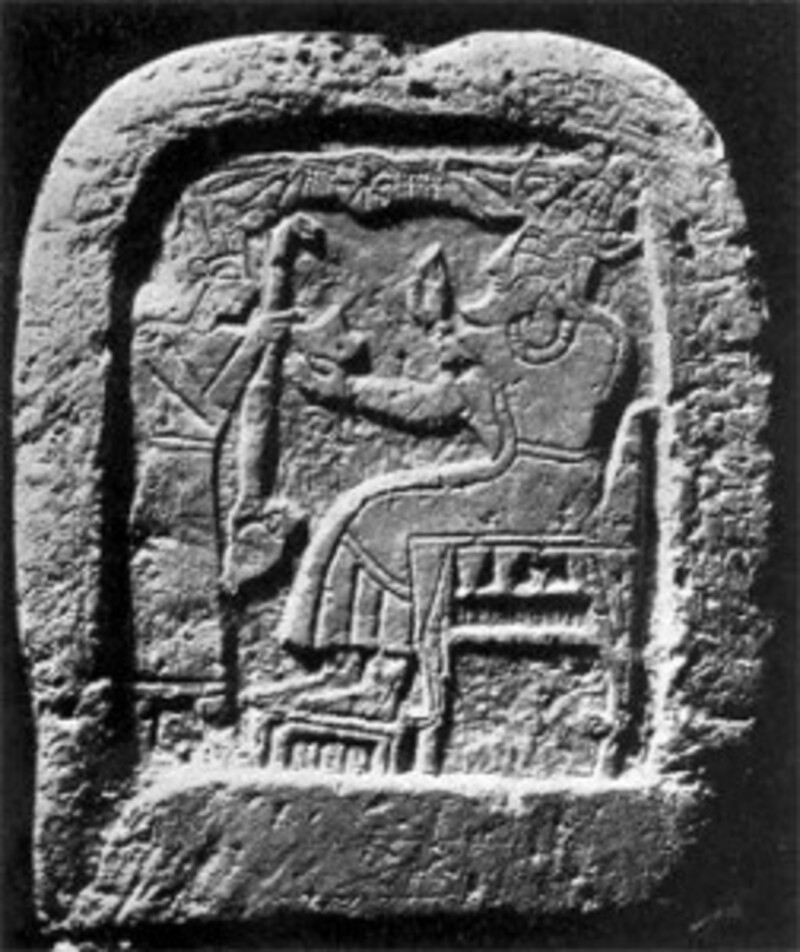Much is made of the breakthrough innovation of the Jewish Scriptures having one god and not many. But as we’ve previously covered in the lesson One God? where Canaanites and their hillbilly cousins the Israelites worshiped many gods, with the Israelites not winnowing it down to one until around 586 BC during the exile in Babylon this is just not true.
Now what if I was to tell you that not only do they worship many gods the Bible actually identifies another god that Yahweh is subordinate to? That’s correct. Yahweh as written in the Bible originally is just a member of godly council. The head cheese of this council being El.

Let’s look at what the bible has to say, shall we
Over 200 occurrences of “El” are found in the Hebrew Bible.
It often appears in compound names such as El Shaddai (“God Almighty”), El Elyon (“God Most High”), and El Olam (“Everlasting God”).
“El” is also embedded in Hebrew personal names like Israel (“one who struggles with God”), Bethel (“house of God”), and Elijah (“My God is Yahweh”).
In the earliest biblical texts, “El” reflects an ancient Semitic deity from Canaanite religion, but in Israelite religion, it became synonymous with YHWH (Yahweh) over time.
Genesis 33:20 (The patriarch Jacob sets up a temple to El)
There he set up an altar and called it El Elohe Israel.
- Insight:
- Genesis 33:20 El Elohe Israel can mean El is the God of Israel or mighty is the God of Israel.
Genesis 14:18-20 (El Elyon — God Most High)
“And Melchizedek king of Salem brought out bread and wine. He was priest of El Elyon. And he blessed him and said, ‘Blessed be Abram by El Elyon, Creator of heaven and earth. And blessed be El Elyon, who has delivered your enemies into your hand.’”
- Insight:
- El Elyon (God Most High) was likely a Canaanite title later attributed to Yahweh.
- Suggests that Abraham may have originally worshiped El as a supreme deity before Yahweh became the sole God of Israel.
Numbers 23:22 (El as the Deliverer)
“God (El) brought them out of Egypt; he has the strength of a wild ox.”
- Insight:
- El is portrayed as a powerful deliverer, echoing the role of a high god.
- This shows continuity with the image of a supreme deity common in the ancient Near East.
Deuteronomy 32:8-9 (Dead Sea Scrolls Version):
“When the Most High (El Elyon) apportioned the nations,
when he divided humankind,
he fixed the boundaries of the peoples
according to the number of the sons of God;
Yahweh’s portion was his people, Jacob his allotted inheritance.“
- Insight:
- In this passage, El Elyon (God Most High) is portrayed as the supreme god who divides the nations among the “sons of God” (divine beings), with Yahweh receiving Israel as his inheritance.
- This suggests Yahweh may have originally been one among the “sons of God,” subordinate to El, who distributed the nations.
Psalm 82:1:
“God (Elohim) has taken his place in the divine council;
in the midst of the gods (elohim) he holds judgment.”
- Insight:
- This verse reflects a divine council, a concept common in Canaanite religion where El presided over other gods.
- It aligns with Ugaritic texts where El is the head of the pantheon.
As you can see it becomes apparent once again that the Bible itself cannot be true to a monotheistic deity. The mixing of home brewed religion with those pesky Canaanite belief systems pops up again. We can see this in the Canaanite motherlode of tablets found in the city of Ugarit.
The Bible even declares El as the Creator God.
1. Genesis 14:19 (El Elyon as Creator)
“Blessed be Abram by El Elyon, Creator of heaven and earth.”
- Insight:
- In this passage, El Elyon (God Most High) is explicitly credited with the creation of the universe.
- This reflects older Canaanite traditions where El was the supreme creator deity.
- At this stage, El is a distinct figure, but later interpretations identify El Elyon with Yahweh.
2. Psalm 102:25 (God as Creator with El-like Language)
“Of old you laid the foundation of the earth, and the heavens are the work of your hands.”
- Insight:
- The poetic style here echoes descriptions of El in Ugaritic and other ancient Near Eastern texts.
- Although this verse uses Yahweh in context, the language retains traces of earlier El imagery.
3. Job 5:9 (El as Creator of Wonders)
“But as for me, I would seek El, and to El I would commit my cause, who does great and unsearchable things, wonders without number.”
- Insight:
- El is described as the source of creation and wonder, reflecting the concept of a supreme creator god.
- The Book of Job preserves some of the oldest theology in the Hebrew Bible, showing a continuity with pre-Yahwistic traditions.
Ugaritic Texts (Canaanite Religion):
- In Ugaritic mythology (discovered at Ras Shamra), El is the chief god and father of the gods, including Baal and other deities.
- Some scholars argue that Yahweh may have started as a regional or warrior deity who was later equated with El.
Merger Over Time:
- By the time of later biblical texts (e.g., Isaiah, Jeremiah), Yahweh is fully identified with El, absorbing his titles and attributes.
- Names like El Shaddai and El Elyon are used interchangeably with Yahweh.
So based on the actual words in the Bible and archeological finds it become clear that Yahweh started as just another member of a god secretarial pool working for Mr. El but rewrite after rewrite he/it emerges as the top dog. And the other gods? Well they end up becomming no more than false idols. Talk about a go-getter.
As luck would have it this is a textbook case of the term Syncretism where a religion uses aspects of previously existing religions blending them up into a delicious stew of what eventually becomes Christian outrage.

